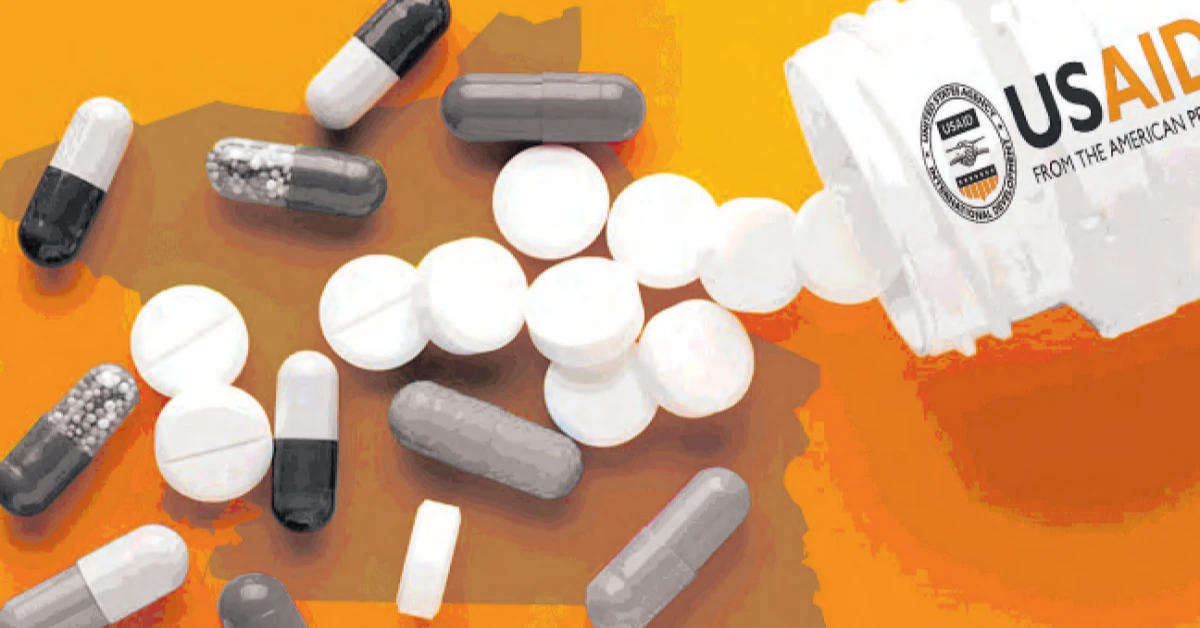
KENYA – Kenya is among the top 10 countries most dependent on the United States for HIV medication, with 30% of its antiretroviral (ARV) drugs directly funded by the US.
Additionally, the Global Fund, which also receives about one-third of its funding from the US, covers much of the remaining supply.
A recent UNAIDS report, Impact of US Funding Freeze on the Global AIDS Response, highlights the risks of Kenya’s heavy reliance on American support.
The US not only funds drug purchases but also provides critical support for logistics, procurement, and quality assurance in Kenya and 32 other countries. Seven nations, including Kenya, receive more than 80% of this support.
Following a decision by the US government to freeze funding, USAID terminated contracts with 5,800 organizations worldwide, including around 230 in Kenya.
The sudden withdrawal of support threatens to cause severe shortages of HIV drugs and disrupt healthcare services.
“Rapid shifts in the management of these systems will greatly increase the risk of supply disruptions and stockouts, which would negatively impact the health outcomes of large numbers of people living with HIV and increase the risk of HIV transmission,” UNAIDS warned.
Many of the affected Kenyan projects had initially been granted a waiver in January, recognizing their work as essential. However, recent communications from USAID confirmed that support would not continue.
“Secretary [Marco] Rubio and PTDO Deputy Administrator [Peter] Marocco have determined your award is not aligned with Agency priorities and made a determination that continuing this program is not in the national interest,” read a termination notice sent to Moi University College of Health Sciences. Organizations were instructed to halt all activities immediately.
This decision has left many Kenyan institutions without alternatives. Nelson Otwoma, director of the National Empowerment Network of People Living with HIV/AIDS in Kenya (Nephak), urged the government to act. “Kenya must step up and take care of its own people. We are not Trump’s responsibility,” he said.
Dr. Catherine Kyobutungi, Executive Director of the African Population and Health Research Center (APHRC), warned of dire consequences.
“The shutdown will lead to deaths of many people. But we will never know, because even the programs to count the dead are cut,” she told The New York Times.
The funding freeze also affects Kenya’s Demographic and Health Survey, a critical source of data on maternal and child health, nutrition, and reproductive health.
The survey, conducted every five years, is essential for government health planning. Field data collection scheduled for this year has been halted.
Additionally, USAID has suspended a contract to manage and distribute US $34 million worth of medical supplies in Kenya.
This includes 2.5 million month-long HIV treatments, 750,000 HIV tests, 500,000 malaria treatments, 6.5 million malaria tests, and 315,000 antimalarial bed nets.
Kenya has received USAID support since 1964, with healthcare funding accounting for about 80% of its US $471 million annual budget under the agency’s 2020-2025 strategic plan.
With US support uncertain, stakeholders are calling for urgent local solutions to prevent healthcare disruptions.
XRP HEALTHCARE L.L.C | License Number: 2312867.01 | Dubai | © Copyright 2025 | All Rights Reserved